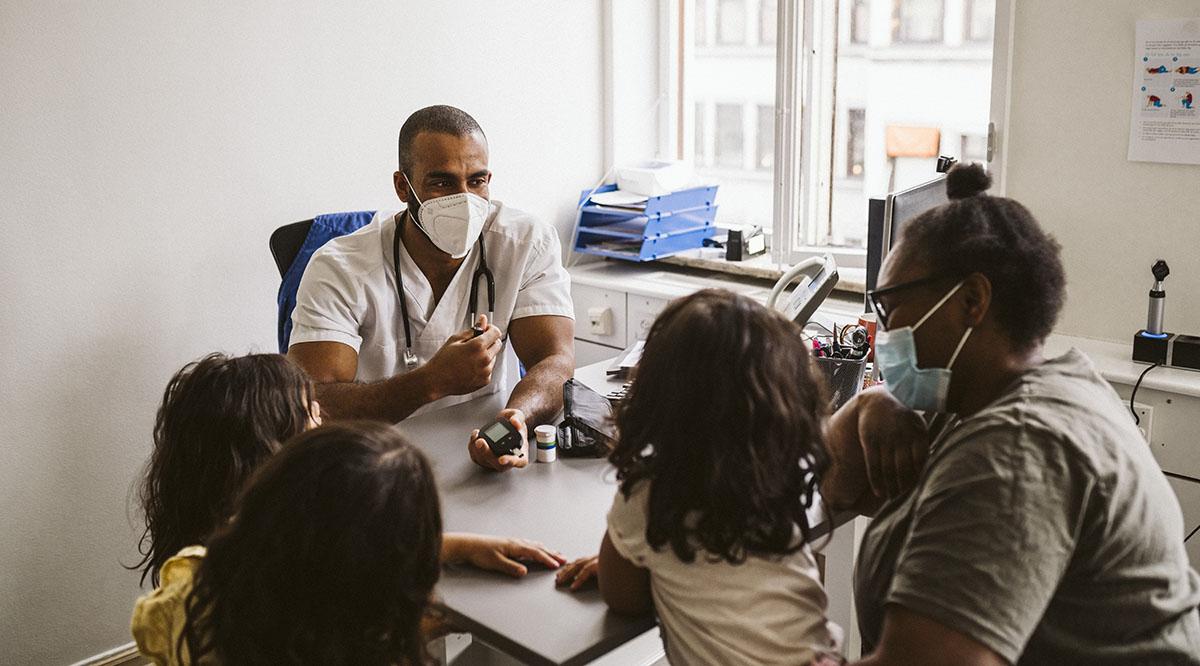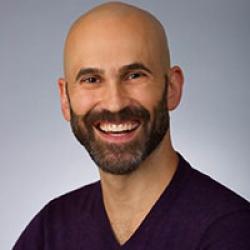The devastating toll of COVID-19 on Black and Brown communities has brought to light what those of us who work in the fields of health equity and population health have known for years — that the health of some of us affects the health of all of us, and that, in order to improve the health of all, we must acknowledge and address the deeply ingrained beliefs, systems, and structures that have perpetuated inequities for far too long.
Central to that work is an understanding of the language that we use to talk about health justice, as well as an understanding of the long-standing — and false — narratives that have shaped our thinking about the root causes of poor health.
Today, the AAMC Center for Health Justice and the AMA Center for Health Equity have released Advancing Health Equity: A Guide to Language, Narrative and Concepts, which we hope will challenge physicians, health care providers, and all of us to change how we speak with and about patients and communities.
Words matter. They matter because they have the power to perpetuate or to dismantle structural racism, to empower a person or to marginalize them, to reinforce a harmful traditional narrative or to provide an alternative one.
Let me provide a few examples. For many years, we have described patients by their diagnoses, as if their identities were synonymous with the diseases for which they sought care. People with diabetes are diabetics, and those with obesity are the obese. Or we conflate a person’s identity with their housing status: Those without permanent addresses are the homeless. Or we classify an entire population by their underprivileged status: a vulnerable community, for instance.
All these terms can be stigmatizing. But even worse, they place blame and perpetuate beliefs about people that disregard their lived experiences and the forces that may have contributed to their circumstances and/or ill health.
Advancing Health Equity: A Guide to Language, Narrative and Concepts is just one tool that the Center for Health Justice has helped develop to start to reverse the dominant narratives in medicine and society that value the more privileged socioeconomic groups — White, heterosexual, able-bodied, cisgender, male, wealthy, English-speaking, Christian, U.S.-born — and devalue all others.
Other recent efforts include the release of the Principles of Trustworthiness, which seek to transform the way that institutions and organizations interact with the community, including changing the dominant narrative in which we educate the community to one in which we engage with the community as coequal partners.
The Center for Health Justice itself is just one component of the new AAMC strategic plan, which includes efforts to increase diversity and improve equity and inclusion in medicine. Officially launched in September, the center will address the serious health inequities that affect communities nationwide and ensure that all people begin at the same starting line for health.
Additionally, the AAMC released an anti-racism framework in 2020 — Addressing and Eliminating Racism at the AAMC, in Academic Medicine, and Beyond — that outlines concrete steps the association is taking to address structural racism across all fronts: as individuals, as an association, as part of the academic medicine community, and as members of society.
The AMA also has embarked in recent years on a journey to improve racial justice and health equity. In 2008, the association issued a public apology for long excluding Black physicians from its policymaking body. In 2020, the AMA House of Delegates adopted a policy recognizing racism as a public health threat, and has since released its own strategic plan to embed racial justice and advance health equity in medicine.
None of these efforts are painless. They require all of us to reflect on and confront our own biases — implicit and explicit. They may also require change in how physicians practice medicine, how educators teach learners, and how everyone thinks about their roles as physicians, scientists, community members, and citizens.
Words matter — but so does our willingness to embrace change and reflect on the ways we each perpetuate or dismantle health-harming narratives. In changing the way that we speak, we can begin to change the way that we think about racial justice and health equity. And that may bring us one step closer to achieving heath justice for all.

